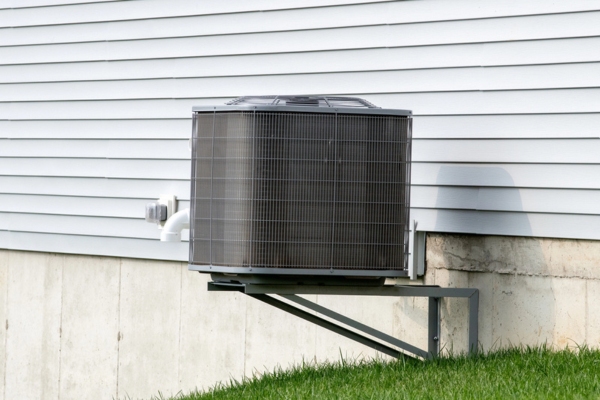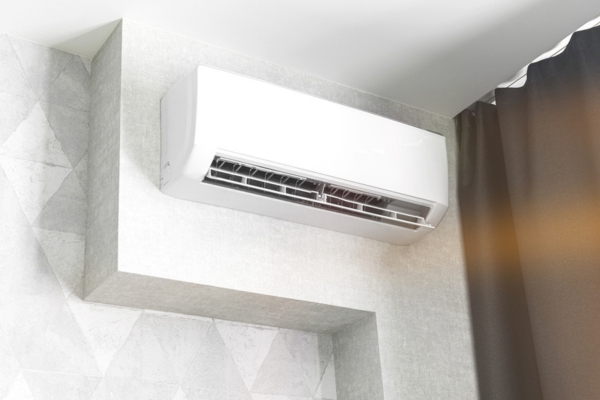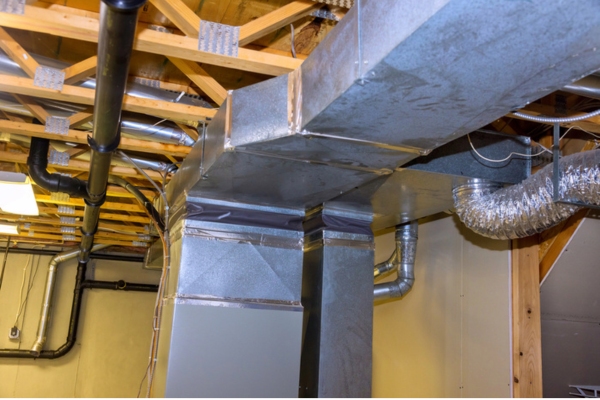Table of Contents
- Choosing Between Central Air and Ductless Systems for Your Home
- Exploring Central and Ductless AC Systems
- Core Distinctions Between Central and Ductless Cooling Systems
- Advantages and Drawbacks of Central and Ductless Cooling Systems
- Which Cooling System Fits Your Home Best?
- Weighing the Costs of Central vs. Ductless Cooling
- Frequently Asked Questions: Ducted vs Ductless Air Conditioning Systems
- Which Option Offers Greater Energy Efficiency—Ducted or Ductless?
- Is Whole-Home Cooling Possible with a Ductless System?
- Which System Offers Better Indoor Air Quality: Ducted or Ductless?
- How Do Ducted vs Ductless Air Conditioning Systems Compare in Installation Costs?
- What’s the Best Cooling Option for Homes Without Ductwork?
- Conclusion
- Call County Line Fuel for All Your HVAC Needs
Selecting the best air conditioning setup for your home plays a major role in your comfort, energy usage, and long-term property value. County Line Fuel specializes in providing advanced cooling systems—whether it’s central air or ductless mini-splits—designed to match your specific needs.
This article explores the key distinctions between central ducted vs ductless air conditioning systems, focusing on their strengths, limitations, and ideal applications. A clear view of these important factors will help you choose the system that fits your needs and lifestyle, ensuring consistent energy-efficient cooling across your home.
Stay Cool with Confidence: County Line Fuel delivers expert cooling solutions tailored to your home—schedule your service today!
Choosing Between Central Air and Ductless Systems for Your Home

If you’re planning to upgrade or install a new cooling system, it’s essential to determine which option aligns best with your home’s layout and comfort goals. Below, we’ll break down the core features and advantages of ducted and ductless systems to help identify the most effective solution for your living space.
Cool Comfort, Custom Fit: County Line Fuel offers ducted and ductless AC systems to suit your home—reach out to get started!
Exploring Central and Ductless AC Systems
Central air conditioning systems rely on a single unit that cools the air before distributing it through ductwork to maintain even temperatures throughout the home. This type of system is well-suited for modern homes and larger properties where whole-house climate control is desired.
Ductless systems, or mini-splits, function differently. They use an outdoor compressor connected to one or more indoor units, each targeting a specific area. Since they don’t require ducts, ductless units are perfect for older homes without existing ductwork, home additions, room conversions, or enhancing comfort in problem areas with uneven temperatures.
Core Distinctions Between Central and Ductless Cooling Systems

Recognizing the essential differences between ducted and ductless AC systems can guide you toward the best choice for your home. Below are the primary factors to keep in mind as you evaluate your options:
Air Conditioner Installation Considerations
Installing a ducted system can be more involved and expensive, particularly in homes lacking existing ducts, since it requires extensive ductwork throughout the property. Ductless systems, by comparison, are typically faster and less invasive to install, needing only a small opening to link the indoor units with the outdoor condenser. This makes them a practical option for homes where limiting construction is a priority.
Tailored Cooling Starts Here: Let County Line Fuel guide you in selecting the ideal ducted or ductless system for your home. Contact us today!
Energy Use and Cooling Performance Efficiency
Central systems may lose a notable amount of energy through leaks or gaps in the ductwork, especially in aging or neglected systems. On the other hand, ductless units offer greater energy efficiency by delivering cooled air directly into each room, avoiding duct-related heat loss and keeping energy consumption lower overall.
Visual Impact and Space Requirements

Ducted air conditioning systems are hidden within ceilings and walls, preserving a clean and unobtrusive appearance in living spaces. Ductless systems, in contrast, involve installing indoor units that remain visible—either mounted on walls, ceilings or near the floor—which may not suit every interior design preference.
Smart Cooling Starts Here: County Line Fuel can help you cut energy costs with the right ducted or ductless solution—get in touch today!
Temperature Management and HVAC Zoned Control
Central systems deliver uniform cooling across the entire home but usually don’t allow separate temperature settings in individual rooms. Ductless systems excel in this area by offering zoned climate control, enabling each room or zone to maintain a personalized temperature, boosting comfort and energy savings.
Advantages and Drawbacks of Central and Ductless Cooling Systems

To help you make an informed decision, consider the following key benefits and limitations of both ducted and ductless air conditioning systems:
Ducted Air Conditioning: Pros and Cons
Pros:
- A ducted system is ideal for efficiently cooling large homes or open spaces, offering consistent temperatures throughout.
- Because the components are hidden within walls and ceilings, it preserves the clean and seamless look of interior spaces.
- Installing a ducted system may increase the resale value of your home, as it is often considered a desirable feature by potential buyers.
Cons:
- Installation costs can be high, especially in homes that do not already have ductwork.
- These systems may experience energy loss due to leaks or inefficiencies within the duct network.
- Ducted systems typically require more maintenance to keep the ductwork clean and functioning correctly.
Seamless Comfort, Expertly Installed: County Line Fuel will tailor the perfect HVAC solution for year-round home comfort—contact us today!
Ductless Air Conditioning: Advantages and Disadvantages

Pros:
- Installation is simpler and less invasive, making it an exceptional choice for homes without existing ductwork.
- These systems are highly energy-efficient, which can help lower monthly utility costs.
- They provide independent temperature control in each zone, improving comfort while minimizing unnecessary energy use.
Cons:
- Achieving full-home coverage often requires installing several indoor units, which can increase the total system cost.
- The indoor units remain visible, which may affect the visual appeal of your living spaces.
- Routine tasks like cleaning filters are necessary to maintain system performance and indoor air quality.
Ducted or Ductless? We’ll Help You Choose: Schedule a consultation with County Line Fuel to determine the most effective cooling system for your home—call us today!
Which Cooling System Fits Your Home Best?
When a Ducted System Makes Sense

A ducted HVAC system is a strong choice if your home already has ductwork, simplifying installation and reducing costs. It’s ideal for those who want a hidden cooling solution that doesn’t require visible indoor units. This option works particularly well in larger homes where even, whole-house cooling is a priority.
When a Ductless System Is The Better Fit
Consider a ductless mini-split system if your home doesn’t have existing ductwork and you want to avoid the high costs of installing it. These systems are great for targeted cooling, allowing you to set different temperatures in separate zones based on usage or occupant preference. This flexibility is especially useful in multi-purpose areas or households with varying comfort needs. Ductless systems are also known to be energy efficient, helping lower your total energy bills over time.
Step Into Smarter Comfort: County Line Fuel delivers advanced air conditioning solutions for energy savings and personalized comfort—contact us today!
Weighing the Costs of Central vs. Ductless Cooling

Understanding the financial aspects of ducted and ductless air conditioning systems is essential for selecting an option that fits your comfort goals and budget. Below are the primary cost considerations:
- Initial Air Conditioner Installation Expenses: Ducted systems often incur higher upfront costs, especially if ductwork must be added. Ductless systems can be less expensive to install initially, though the final price depends on how many indoor units are needed.
- Ongoing HVAC Energy Efficiency: Ductless systems typically consume less energy, lowering monthly utility bills. Ducted systems may require more upkeep and duct sealing to reduce energy waste.
- Cooling System Maintenance and Repairs: Ducted systems need periodic duct cleaning and inspections to operate efficiently. Ductless systems require routine filter maintenance and occasional checks for refrigerant levels.
Upgrade to Reliable, Efficient Comfort: County Line Fuel offers expert HVAC replacements and installations tailored to your home. Contact us now to get started!
Frequently Asked Questions: Ducted vs Ductless Air Conditioning Systems

Which Option Offers Greater Energy Efficiency—Ducted or Ductless?
Ductless air conditioning systems typically offer better energy efficiency because they avoid the losses often associated with ductwork. This issue can lead to up to 30% of wasted cooling in traditional systems. They also feature inverter-driven compressors that adjust output to match current cooling demands, helping minimize excess energy use and reduce overall utility costs.
Is Whole-Home Cooling Possible with a Ductless System?
Yes, a ductless system can cool an entire home when set up with several indoor air handlers connected to a single outdoor unit. This configuration supports zoned cooling, giving each area its own temperature control. For larger homes, achieving full coverage may require multiple outdoor units or a hybrid system combining ducted and ductless solutions for optimal performance.
Which System Offers Better Indoor Air Quality: Ducted or Ductless?
Ductless systems typically deliver better air quality thanks to advanced multi-stage filtration that captures dust, allergens, and other airborne particles before the air enters your living space. In contrast, ducted systems can collect dust, mold, and debris in the ductwork over time, affecting air quality unless professionally cleaned regularly. A ductless system may provide a cleaner and healthier indoor environment for households with allergy sufferers or respiratory concerns.
Count on County Line Fuel for Complete Cooling Solutions: From expert installation to dependable maintenance, we handle all your ducted and ductless AC needs—call today!
How Do Ducted vs Ductless Air Conditioning Systems Compare in Installation Costs?
Ducted air conditioning systems usually involve higher installation expenses, particularly when ductwork must be added to a home—an often time-consuming and costly process. Ductless systems, by contrast, involve a simpler setup that requires only a small wall opening for connecting lines. However, the cost can rise if several indoor units are needed to cool the entire home. It’s also important to factor in long-term savings since ductless systems often reduce energy expenses over time due to their high efficiency.
What’s the Best Cooling Option for Homes Without Ductwork?
For homes without existing ductwork, ductless cooling is often the smartest and most economical choice. Adding ducts to an older structure can be costly, disruptive, and labor-intensive. In contrast, ductless mini-split systems offer efficient, flexible cooling with minimal changes to the home’s structure. They also provide zoned temperature control, making them ideal for households that need different comfort levels in separate areas or floors.
Conclusion
To wrap up, ducted air conditioning systems are best suited for larger homes with existing ductwork. They offer consistent, whole-home cooling with a clean, hidden design. Ductless systems, however, are ideal for homes without ducts or those seeking efficient, customizable cooling in specific areas.
County Line Fuel brings expert knowledge in ducted and ductless HVAC solutions, providing professional installation and ongoing care to ensure maximum comfort. The correct choice will depend on your home’s structure, your budget, and energy efficiency goals. Count on County Line Fuel to support you through the entire process, from evaluation to installation.
Get the Comfort You Deserve: Count on County Line Fuel for expert HVAC installation, service, and support—call today to schedule!
Call County Line Fuel for All Your HVAC Needs

County Line Fuel provides top-quality heating and cooling services throughout Clinton, NJ, and the surrounding areas. Our team comprises highly trained, certified technicians specializing in HVAC tune-ups, repairs, installations, replacements, and more. Each technician brings the skill and experience needed to ensure your system is serviced with precision.
We pride ourselves on offering some of the most competitive HVAC pricing in the region. Our maintenance solutions enhance your indoor comfort, boost energy efficiency, and help minimize heating and cooling expenses. If your system needs repair or replacement, we’ll guide you to the most effective and budget-friendly options.
All of our work is backed by a satisfaction guarantee. To schedule your in-home consultation or service appointment, contact County Line Fuel today. Call now!
You can click here to contact us now or call us at (908) 735-7610 to find out more! Click the link to view our service area.
Related Articles:
